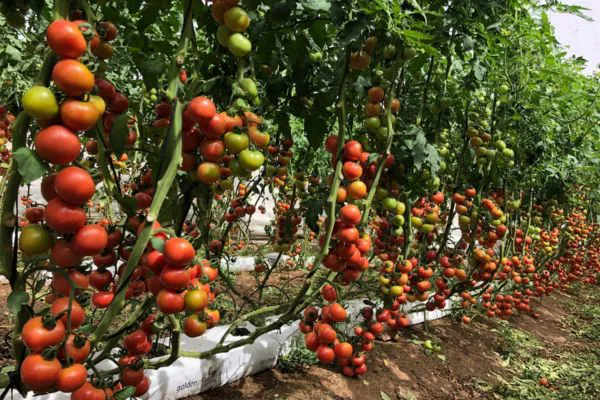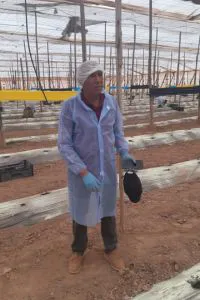The Moroccan export tomato season is drawing to a close, with the exception of a few varieties. Mustapha Aouragh, a grower located in the Souss Massa region, said, "Most producers have finished their export calendars, with the exception of a few producers who are growing elongated tomato and cherry tomato varieties destined in particular for the British market."

According to the grower, "Prices improved towards the end of the season, but not to the point of allowing growers to recoup losses incurred due to poor weather conditions, phytosanitary problems, and the government-imposed export restriction."
Aouragh adds, "In terms of volumes, the season has been poor compared with previous years. In the Souss Massa region, the production deficit is around 20% compared with last year."
Part of the loss in volumes is due to the diseases ravaging the tomato sector, which have given growers a great deal of trouble, according to Aouragh. He explains, "This situation imposes strict sanitary protocols, which increase production costs, not to mention the destruction of affected crops. We are testing the new resistant varieties coming onto the market, but with great caution, and their adoption has not yet been decided."
 According to the grower, the increase in production costs this year is as high as 50%, he adds: "These increases have notably impacted the cost of inputs, fertilizers, and nutritive products. The prices of some inputs have come down from the highs recorded earlier this year but remain above last season's prices. We hope that costs will remain at a correct and reasonable level next year."
According to the grower, the increase in production costs this year is as high as 50%, he adds: "These increases have notably impacted the cost of inputs, fertilizers, and nutritive products. The prices of some inputs have come down from the highs recorded earlier this year but remain above last season's prices. We hope that costs will remain at a correct and reasonable level next year."
At a time when Moroccan tomatoes were confined to the local market due to export restrictions, European markets were supplied from Turkey and Egypt. Aouragh makes no secret of his concern: "Moroccan tomatoes have become the default tomato in Europe, at the cost of a great deal of effort and progress made by producers. We have very quickly gone from a class 5 product to a first-class product, and we have stood out from the competition."
Aouragh continues: "Yet, with the consecutive restrictions, our markets risk finding durable solutions in other competing countries, which threatens the place of the Moroccan product and a mature industry that has proven its excellence. We expect more dialogue with the government so that the 2024 season will be the season of rehabilitation for Moroccan tomatoes."
In terms of markets, Aouragh relays the hopes of Moroccan exporters to return to the Russian market, "many exporters with whom I have been in conversation are waiting for the situation in Eastern Europe to improve and for a return to the Russian market. Faced with increasingly unpredictable market hazards, every destination is important for the sector's economic security."
For more information:
M. Aouragh Mustapha
Tel.: +212661938200
Email: [email protected]










